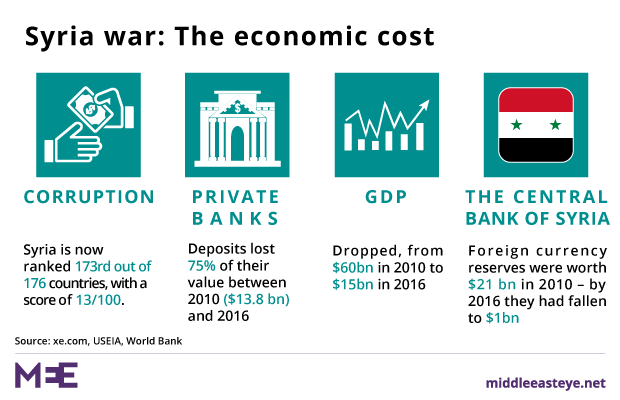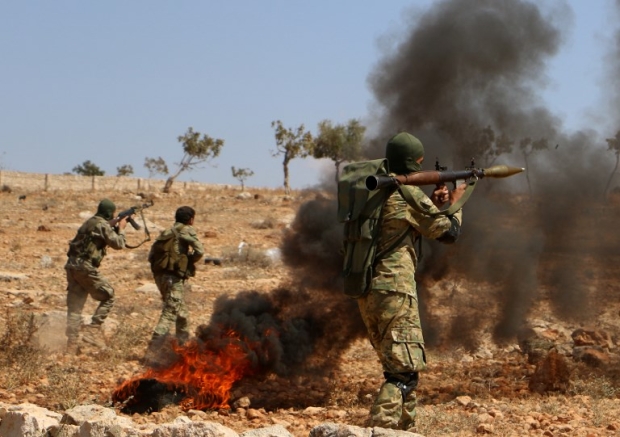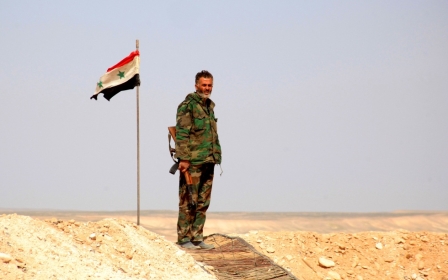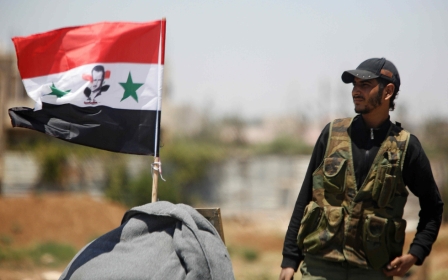Idlib is the last bastion against a Syria without Syrians
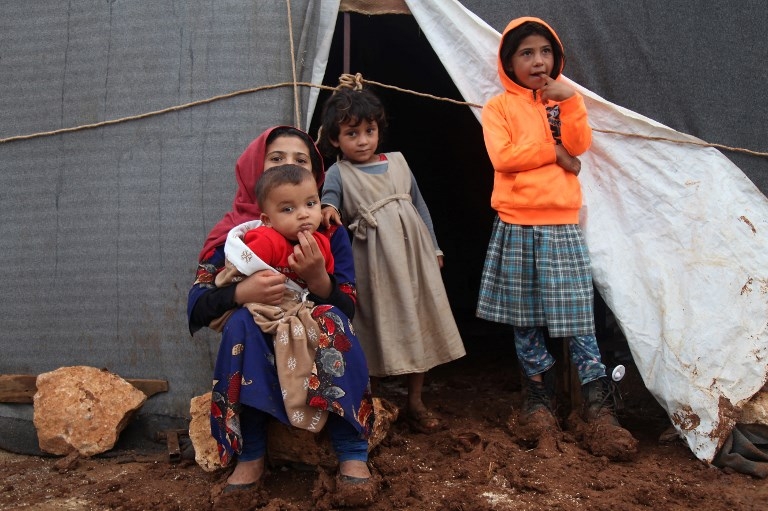
The Syrian crisis has transformed from a demand for change to a full-scale war, due to regional and global interventions. The country is now the site of a prolonged proxy war.
According to an anachronistic, left-liberal reading, a war of reckoning with imperialism is taking place. Needless to say, all actors are fighting against terrorism in Syria; each has preserved at least one terrorist group to fight.
The Islamic State is not only the mother of all terrorist groups, but also a lifetime visa for foreign forces to maintain a presence in Syria. While there is ample pretence for intervention in the country, the narrative of the crisis has been diverted from the people’s suffering to purely a problem of terrorism - leaving us, in the end, with a Syria without Syrians.
Destruction of demography
Meetings, negotiations, deals and agreements, like the latest one held last week in Istanbul, which called for a political solution to Syria's devastating seven-year war, have all lacked one important element: Syrians. Yes, from time to time, President Bashar al-Assad’s name is mentioned in Syrian matters; he is useful as camouflage for interventions by the Russians and Iranians. But on the whole, Syrians have lost their homeland and identity.
They are refugees, immigrants, terrorists, civilians, victims, opposition fighters, etc. They will not regain their identities in the foreseeable future, as long as their homeland is under Assad’s rule.
[Assad] will enjoy his so-called family state and government, while feeling no responsibility to provide even basic services to the people. The latest crisis in Idlib is among the best examples of this awkward tragedy
Assad and his supporters know very well that the president, as a representative of a minority in Syria, has been rejected by the overwhelming majority of Syrians. Yet the regime’s destruction of Syrian demography through sectarian cleansing represents an important gain for the Assad government.
As a result, more than half of the Syrian population has been internally displaced or forced to seek refugee status in dozens of different countries - representing Assad’s only formula for clinging to power.
Yet, the distortion of demography at the cost of the majority is not enough. Assad still needs a cheap, effective, safe insurance policy. To secure his position, he has turned Syria into a land of military bases, with the presence of several foreign countries.
He will enjoy his so-called family state and government, while feeling no responsibility to provide even basic services to the people. The latest crisis in Idlib is among the best examples of this awkward tragedy.
The Assad regime has threatened another wide swath of Syrians in Idlib with displacement. Such tensions have played out in other corners of Syria over the last seven years, yet no one has heard the voices of Syrians; rather, the world has heard about a new potential wave of migration and terrorism originating in Idlib. The global reaction to a possible assault on Idlib has mainly focused on the new migration crisis and the use of chemical weapons.Two birds with one stone
For Assad and his staunch supporters, Idlib means nothing but a primitive game of killing two birds with one stone - destroying the opposition and engaging in sectarian cleansing at the same time.
Although the efforts of Turkey, as the only actor that has actively resisted the Russian and Iranian push for a massacre in Idlib, have produced a deal preventing military moves against the city of three million, Damascus’s obsession with Idlib has not disappeared.
Idlib is not just the last stronghold of the opposition, as identified by global media. It is the last safe haven for almost 20 percent of the current Syrian population. Since the label of “opposition” is being used interchangeably with the term “terrorist”, there is no guarantee that the Assad regime will constrain itself from attacking Idlib.
Regardless of the armed opposition operating in Idlib, Damascus cannot declare victory while more than three million Syrians are still resisting its direct rule. These Syrians enjoy access to the world through the Turkish border.
How will the world respond?
The rest of the world appears to have given up any principled ethical, geopolitical or humanitarian stance on the conflict. From the beginning, this has been the tragic story of the Syrian crisis. It is not only irresponsible to reduce the entire Syrian crisis to a migrant issue, but it is also irrational to scale down the potential tragedy in Idlib to the issue of chemical weapons.
The current Idlib deal brokered by Turkey could avert a possible Russian-Syrian attack only in the medium term. In order to secure a final deal in Syria, the world’s attention is needed.
Western detachment from Syria, and its paring of the Syrian crisis down to the issue of terrorism, is the biggest obstacles to generating a solid geopolitical approach and a platform for resolution.
Idlib is just 50km from the outside world, and Turkey is not in the mood to act as a migrant buffer zone anymore. Destroying Idlib means crushing the hopes of Syrians to live in their homeland, while telling Syrian refugees not to come back. If this is not the message the world wants people to hear, it should develop a humanitarian and geopolitical consciousness immediately.
Idlib is the last refuge for Syrians and the world to keep hope alive; any other scenario will result in a Syria without Syrians.
- Taha Ozhan is an academic and writer and holds a PhD in politics and international relations. He was chairman of the foreign affairs committee of the Turkish parliament and senior adviser to the prime minister. He frequently comments and writes for international media. His latest book is Turkey and the Crisis of Sykes-Picot Order (2015).
The views expressed in this article belong to the author and do not necessarily reflect the editorial policy of Middle East Eye.
Photo: Displaced Syrian children take shelter in a flooded refugee camp in the Idlib countryside on 25 October 2018 (AFP)
New MEE newsletter: Jerusalem Dispatch
Sign up to get the latest insights and analysis on Israel-Palestine, alongside Turkey Unpacked and other MEE newsletters
Middle East Eye delivers independent and unrivalled coverage and analysis of the Middle East, North Africa and beyond. To learn more about republishing this content and the associated fees, please fill out this form. More about MEE can be found here.



